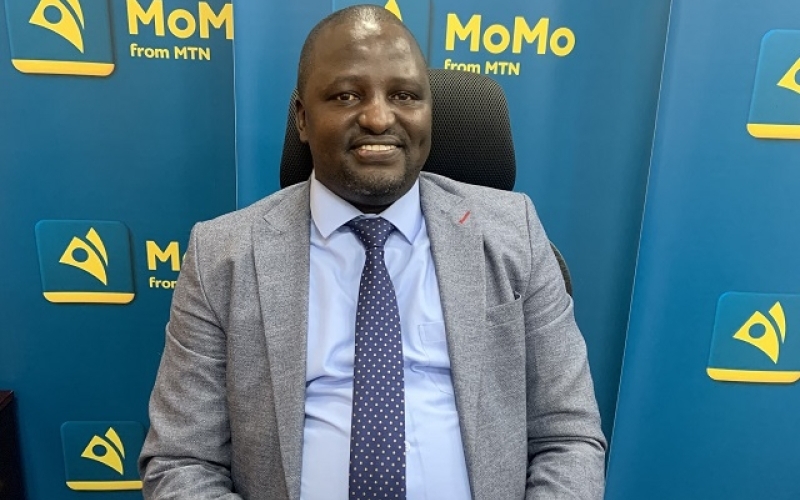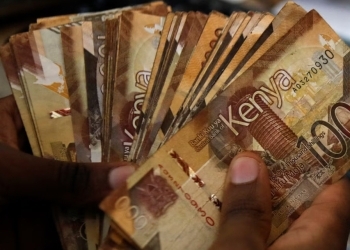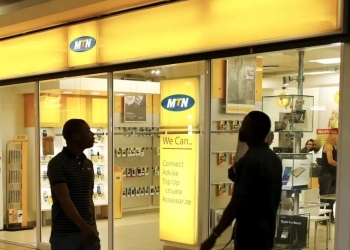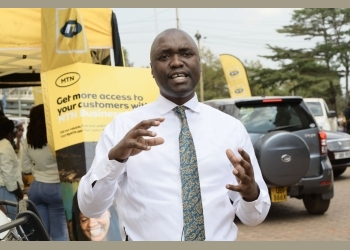
By Richard Yego
Over the past 25 years, MTN has played an instrumental role in shaping Uganda’s telecommunications and digital economy, marking a journey characterized by innovation and transformation.
Our presence in Uganda has been nothing short of transformative, with our pioneering approach significantly changing the way people communicate and access financial services.
Mobile Money, introduced by MTN in 2009, has been a game-changer in Uganda. Prior to its advent, traditional banking systems were primarily confined to urban areas, leaving rural and underserved communities financially excluded.
The absence of banking infrastructure and the requirement for a physical presence at banks posed significant barriers to financial inclusion. Nevertheless, with the introduction of mobile money services, access to financial services became democratized, bridging the urban-rural
divide and positively impacting countless Ugandans.
This trailblazing platform allowed people to send and receive money, pay bills, and access a wide range of financial services, all through the convenience of their mobile phones. Today, according to the UCC market performance report for Q4 2022, there are 36.8 million users registered with mobile money accounts, accounting for more than 80% of Uganda’s population.
The integration of the MTN mobile wallet with utility companies like Umeme and National Water, and banks allowed customers to transact with greater convenience. When we added pay TV services and School fees payments, parents were able to pay for their children from the convenience of their homes.
Later, when we launched the MTN MoMo App, we realized that smartphone penetration was growing, and there was a need to offer alternative channels because initially mobile money was being accessed via USSD. Today USSD remains the preferred channel, but this is because of the low smartphone penetration.
In time, banks rolled out Agent Banking, and the partnership with MTN MoMo eased access to liquidity for our agents, because in the past they would have to rely on bank branches to get float.
So, from 2018, we started seeing increased access to float and cash by our agents through the over 35,000 bank agents.
In 2016, we introduced MoKash – a loan and saving product with NCBA, the very first of its kind in the country. Initially, we were restricting loan disbursements to the amount saved, however, with time we became more flexible to accommodate those with lesser saving value, for loans as
much as 50,000.
Today at least two million customers are eligible to borrow on MoKash.
Early last year we also launched MoMo Advance (an overdraft facility) that enables customers to complete transactions with insufficient funds in partnership with NCBA and MoSente – a term loan product in partnership with Jumo.
Looking at the transformation from a mere send and receive platform, to a platform that can offer a wide range of services mentioned above, our current focus is to scale cashless transactions, in line with driving Uganda’s goal of becoming a cashless economy.
The cashless transactions are driven by MoMo Pay, which was rolled out in 2018, and allows consumers to use the money they have on the phone to pay for goods and services.
This has been another big game changer that we have seen grow very fast. We now process over UGX 7 billion transaction value daily from these transactions with over 280,000 active MoMo Pay merchants countrywide.
It should be noted that Uganda’s Fintech sector is experiencing rapid expansion, with over 29 licensed Fintechs operating in the country under the National Payment Systems Act 2020.
These innovative ventures are revolutionizing financial services, providing inclusive access to banking, payments, and lending. By leveraging digital technologies, fintech companies are empowering individuals and businesses, driving financial inclusion, and fueling economic development.
The e-commerce sector in Uganda is also booming, projected to reach a value of $2.5 billion by 2025. This surge in e-commerce activity is unlocking new possibilities for entrepreneurs, expanding market reach, and promoting economic growth.
Ugandans are embracing the convenience of online shopping, and businesses are adapting to the digital age.
Furthermore, Uganda’s vibrant start-up ecosystem is disrupting traditional industries and propelling economic growth. With over 1,000 start-ups operating nationwide, innovation and entrepreneurship are thriving.
These start-ups are at the forefront of digital innovation across
sectors, creating employment opportunities and fostering a culture of creativity and innovation.
As of 30 th September 2023, MTN Fintech subscribers have increased by 9.7% to 11.6 million, with the MoMo Pay platform contributing to merchant growth. The increased adoption of cashless payments has driven overall transaction value up by 57.7% between September 2022
to September 2023 to UGX 96.5 trillion, with advanced revenues making a substantial contribution to overall fintech revenue.
The impact of mobile money extends beyond financial services, sparking competition among Payment Service Providers and banks, leading to improved service quality and lower transaction costs for consumers.
Regulatory bodies, such as the Bank of Uganda (BOU), Uganda Communications Commission (UCC), Financial Intelligence Authority (FIA) and National Information Technology Authority of
Uganda (NITA-U) have played a pivotal role in ensuring the safety and security of fintech platforms.
Challenges such as high transaction fees on interoperability have been mitigated by the recent reduction of Person-to-Person (P2P) sending fees in December 2022. Fiscal policy interventions like the 0.5% tax on cash withdrawals implemented in 2018 has impacted adoption of this use case.
We continue to collaborate at industry level and dialogue with regulators, policy makers and government to create an environment that stimulates growth and innovation in the fintech space.
Three years ago, parliament of Uganda passed the National Payment Systems Act 2020, giving BOU the mandate to license, supervise and regulate all Electronic Money Issuers (EMIs), Payment Service Providers (PSPs) and Payment System Operators (PSOs). Under the law, there is a provision which allows experimentation in financial innovation under a controlled environment (regulatory sandbox) for a specified period prior to acquisition of a license.
As we continue to innovation in financial services, fraudsters are not relenting. Cyber-crime and fraud mainly driven through social engineering have been prevalent over the years.
However, we have tackled this challenge through industry collaborations with Banks, PSPs, PSOs, regulators as well as the media to increase awareness levels of our customers on the importance of protecting their PINs and Passwords. We recently led two major campaigns –
Tonfeera and Beera Steady which have reduced the prevalence of fraud cases by over 80%.
Our commitment to innovation and improving the quality of the services we rollout is unwavering. We recognize the ever-increasing demand for faster, better, convenient, and more affordable services.
Despite unique challenges in Uganda’s Tech landscape, including low smartphone penetration (just over 35%) and affordability issues, we are dedicated to upgrading customers from 2G and 3G to 4G and 5G. This strategic move ensures better user experience for our customers.
Our partnerships with TECNO Mobile Uganda and M-KOPA to make high-quality smartphones more accessible to a broader range of consumers underline our commitment to ensuring technology reaches every corner of Uganda. This is well in line with our belief statement: “everyone deserves the benefits of a modern connected life.”
As we celebrate a quarter-century in Uganda, we are not only reminiscing about our past but looking ahead to an even more promising future. MTN’s commitment to pioneering innovation and driving economic progress remains unwavering.
Our journey in Uganda has mirrored the spirit of innovation, and we are poised to continue leading the charge in shaping the nation’s
technological and economic future. The expansion of the internet, the booming e-commerce sector, the rapid growth of the fintech
industry, and the thriving start-up ecosystem are all contributing to Uganda’s economic development and digital transformation.
The Digital Uganda Vision 2040, aimed at equipping 70% of the population with digital skills by 2040, is a is a vision we are deeply committed to realizing through programs like the MTN digital skilling academy.
In conclusion, MTN’s 25 years in Uganda have been a remarkable journey of innovation and transformation. Our role in pioneering mobile money and driving the adoption of cashless transactions has been transformative for the nation. We remain committed to pushing the boundaries of what technology can do for the people of Uganda, and the future looks exceptionally promising as we continue to shape the nation’s technological and economic landscape.
Lastly, as we celebrate a quarter-century in Uganda, we continue to play a leading role in shaping the nation’s technological and economic development. Our commitment to pioneering innovation and driving economic progress remains unwavering.
The writer is the Chief Executive Officer of MTN Mobile Money Uganda Ltd













